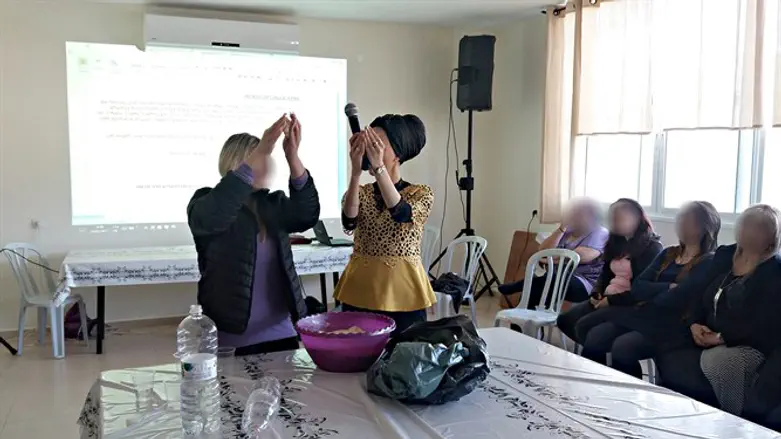
Some 70 women and their children who were rescued from Arab villages took part in a special event organized by the Yad L’Achim anti-assimilation group Friday and Saturday in the town of Kfar Chabad.
The two-day event included a wide variety of activities for the women and their children, beginning with the baking of hallot bread for Shabbat.
After evening prayers on Friday, the women shared their personal stories with one another.
“The girls stayed up until the wee hours of the night with the staff who organized the Shabbat, holding discussions and asking many of the questions bothering them,” a statement from Yad L’Achim read.
The goal of the event, say organizers, was to provide the women and their children a safe, welcoming atmosphere to connect with their Jewish roots.
“Aside from giving the mothers space and peace of mind,” said Suri Kostelitz, one of the organizers, “the goal of the activities was to strengthen their Jewish identity, and give them an understanding of basic concepts in Judaism It was amazing to see after Shabbat a six-year old boy who insisted on hearing the Havdalah (ritual ending Shabbat) twice – once with the other children and once with the mothers. It was the first time in his life that he was exposed to this.”
For the young women born in Arab villages to a Jewish mother and Arab father, special discussions were held separately, focusing on the idea of Jewish identity.
During one such discussion, S., a 45-year old woman with an Arab father and Jewish mother who left her village half a year ago, described her own experiences in a mixed family.
“My mother married an Arab, and passed away at age 52 from a serious illness. A few days before she died she told me that her dream was that one of her daughters would leave the village and return [to Judaism].”
S. added that she felt she was fulfilling her mother’s dying wish, and said she had decided to begin observing Shabbat from now on.
Another woman recently rescued from an Arab village, R., described her life with an Arab husband.
“When you’re with an Arab [man], you’re an Arab woman,” she said. “You’re dressed like an Arab, speak like an Arab, run the house like an Arab, and even eat like an Arab. You aren’t yourself! That’s what bothered me.”